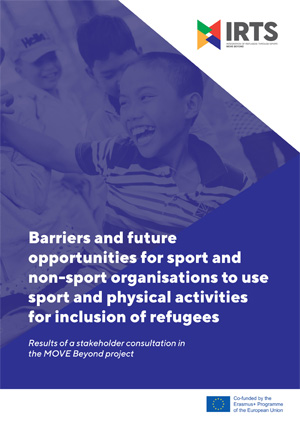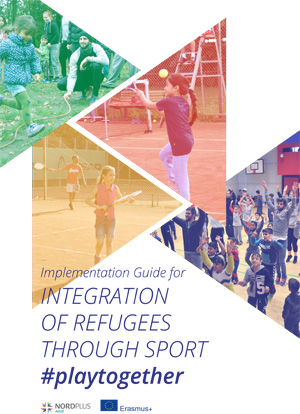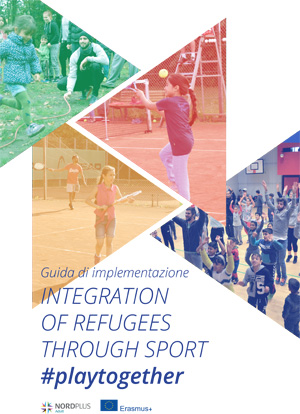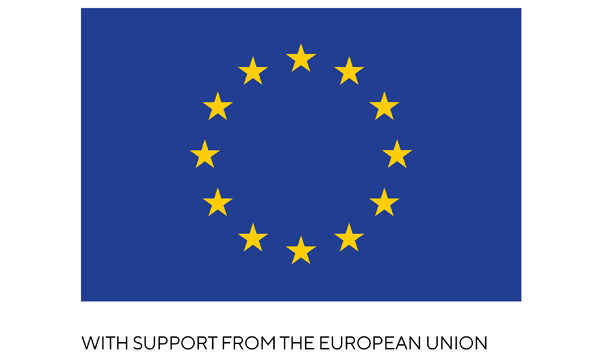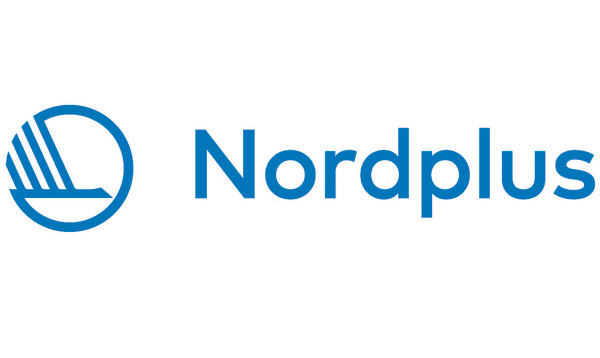INTEGRATION OF REFUGEES THROUGH SPORT
TIPS AND TRICKS
Tips and tricks on working with refugees.
In the last few years, many European countries have welcomed refugees in their communities, despite disagreements and hostile political environment. Many organisations, sports clubs and even individuals are working towards positive integration and involvement of refugees into society as at the end of the day, they are human beings, just like you and me. Based on the experiences of sports clubs in Iceland, Norway, Sweden, Denmark, Germany and Italy, we have gathered Tips and tricks for you as individual, your organisation or sport club on how to start working with refugees, what are the aspects you should consider and think about.
The journey of integration through sport begins with understanding that refugees are human beings, persons and as such deserve and need basic respect. Curiosity and interest should drive you to learn more about their personalities and culture, bearing in mind that the story of their journey is most probably very negative, full of stressful situations and scenes we probably can’t even imagine going through. As the political and social circumstances on this topic are unpredictable and can change at any time, having strong willpower and being resilient will help you to continue path towards positive and lasting change.
Barriers and future opportunities for sport and non-sport organisations to use sport and physical activities for inclusion of refugees
If you work for a community sport organisation and want to reach out to and include refugees in your activities, you will most likely need to get in touch with a local humanitarian organisation to help you get started. What should you do next? ISCA’s MOVE Beyond partners spoke to sport and non-sport stakeholders, including refugees working in the field, to gather perspectives on the barriers to working together and advice on how to overcome them. The results are published in this report produced by the MOVE Beyond project partners, who are piloting initiatives run by sport and non-sport partnerships.
Implementation Guide for Integration of Refugees Through Sport
This implementation guide is designed to introduce you to the topic of Integrating Refugees Through Sport by looking at the relevant theory that is the foundation for the area, the present situation – specifically in Europe, as well as the challenges and barriers that NGOs, sports clubs and other organisations or individuals often face when implementing or running an IRTS programme. This guide looks at the issue from the perspective of those involved: the refugees. Therefore, it also includes an overview of the barriers and challenges through the eyes of those displaced, and trying to build a new life in a new land. Potential solutions to these issues are also examined.
So get inspired, get active, and help make a positive difference to both your community and people’s lives!
#PlayTogether
Guida metodologica Integration of Refugees Through Sport #PlayTogether
Questa guida è stata studiata per introdurvi al tema della Integrazione per i Rifugiati attraverso lo Sport esaminando la teoria pertinenente che è alla base della problematica e della situazione attuale (in particolare in Europa), nonché per illustrare le sfide e le barriere che le ONG, le società sportive e altre organizzazioni o individui spesso si trovano ad affrontare nell'implementazione di un'idea progettuale riferita al tema in esame. Questa guida esamina la questione dal punto di vista delle persone coinvolte: i rifugiati. Pertanto, include una panoramica delle barriere e delle sfide, attraverso gli occhi di coloro che sono sfollati e cercano di costruire una nuova vita in una nuova terra. Vengono esaminate anche le potenziali soluzioni a questi problemi.
Quindi lasciatevi ispirare e siate attivi, contribuite a fare la differenza per la vostra comunità e la vita delle persone!
#PlayTogether



